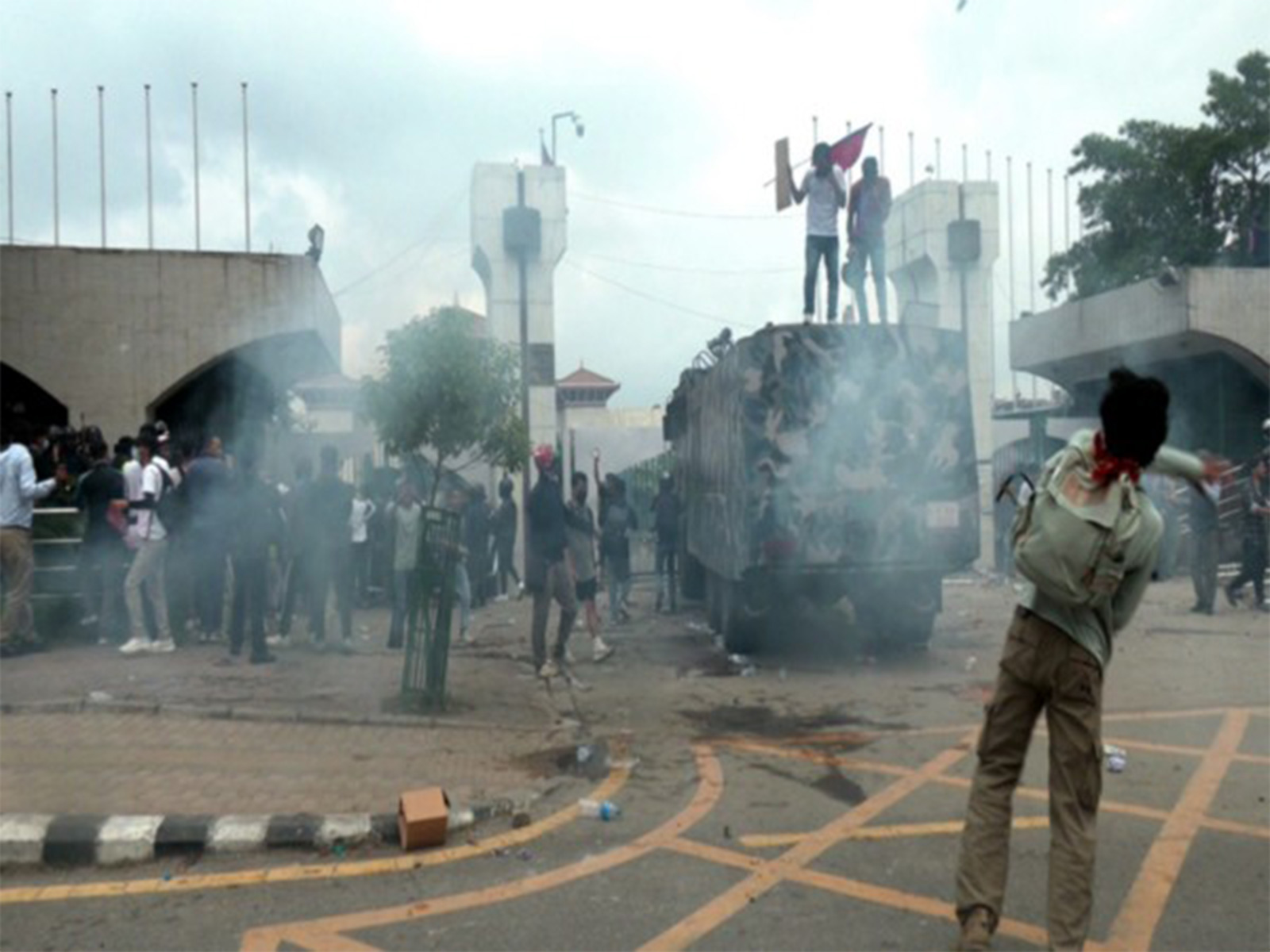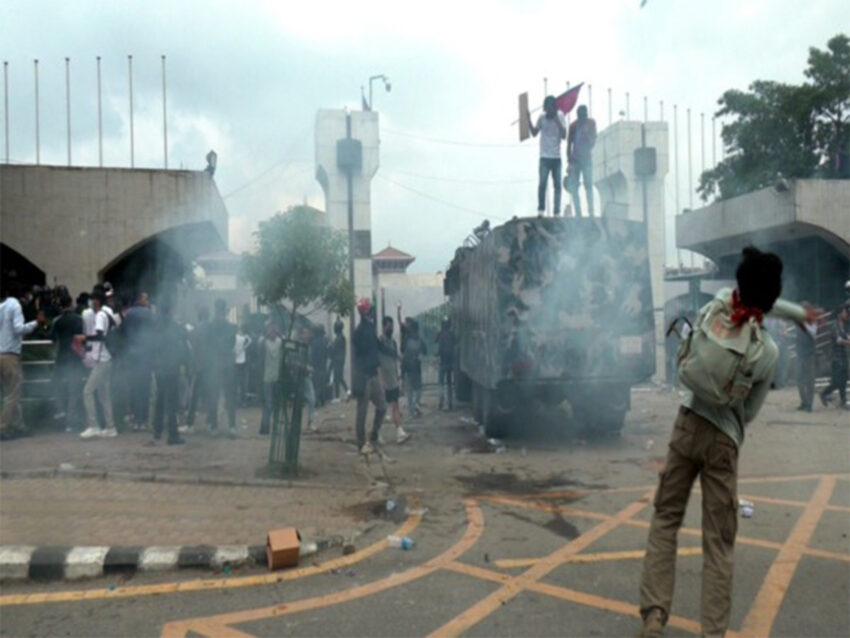
Kathmandu [Nepal], November 10 (ANI): Nepali Congress leader and former minister Minendra Rijal has credited Nepal’s President for preventing a potential refugee crisis during the September Gen-Z protests, which he said could have pushed thousands across the open India-Nepal border.
Speaking to ANI, Rijal said, “We were at the verge of becoming a pariah state. Had we become that, then our neighbour would have been forced to inherit our problem. Thank God it didn’t. Thank God that the president of Nepal had used his conscience, his long experience of being in politics came to use. He rescued the nation from grief that could have been of enormous proportion.”
Rijal defended the actions of the president, who intervened amid growing unrest. “Was it justified? I think it was justified. Was it constitutional? Yes, there can be debate about it. But had he just stick with the letters of the constitution only, had he not followed the spirit of the constitution, had he not gotten the call to defend the constitution, protect the constitution, then he might have gotten it wrong. So I strongly support the decision the president of the country made,” he said.
He added that the president’s intervention prevented a major mistake that could have worsened public anger. “Had we not adhered to what they were trying to say, not just about the banning of social media, but also about their frustration with corruption and many other things, we probably would have made a huge mistake,” Rijal said.
Rijal stressed that the country’s next step should be to hold credible elections to restore stability. “Elections have to be held. That’s the only mandate the current government has. So it has to put all its effort to be able to do that,” he said.
He urged the government to act as a neutral referee. “I would like to see that the government, the prime minister especially, will be able to guarantee that the members of our cabinet are referees who oversee the elections in a free, fair manner. Only then she can assure political parties, can win their confidence,” he said.
According to Rijal, rebuilding confidence among political parties is essential. “First, winning the confidence of the political parties. And for that, the Prime Minister will have to be able to reassure political parties that this is a government of referees. There will be a level playing field as far as the elections are held, no one in the government will have unfair advantage,” he said.
He added that the administration must guarantee law and order. “How police respond to the demands, how administration responds to the demand that any free and fair election will make on the institution of government, that has to be guaranteed,” Rijal noted.
Reflecting on the September 8-9 protests, Rijal said the unrest revealed deep frustration among citizens. He described the events as a mix of anger, opportunism, and desperation. “I saw three distinct things. First, a large crowd of people frustrated with politics. Second, those who went inside private properties to lay their hands on whatever they could. And third, people who later scavenged through the ashes to find something,” he said.
He added, “If we live with two groups of people, one who have everything and others who have nothing, then that rage and anger is there, that clearly is a message that we have not been able to govern the country well.”
Rijal said Nepal must learn from the crisis. “Had we not done it, I don’t know. I don’t want to speculate on that. But one would question the response that the president used to quell the situation. I think it was justified,” he reiterated.
He emphasised that the country’s focus now must be on restoring democratic order. “Once the elections are held, free and fair election, then country can go back on track to the constitutionality and the constitution in Nepal will be fully revived and we can move everything from there forward,” he said.
Rijal concluded that the Congress party must introspect and engage with citizens to regain their trust. “We should understand the message, rise up to it, and be able to talk to people and say, well, these are the mistakes we made in the past. This is how we would like to change,” he said. (ANI)


